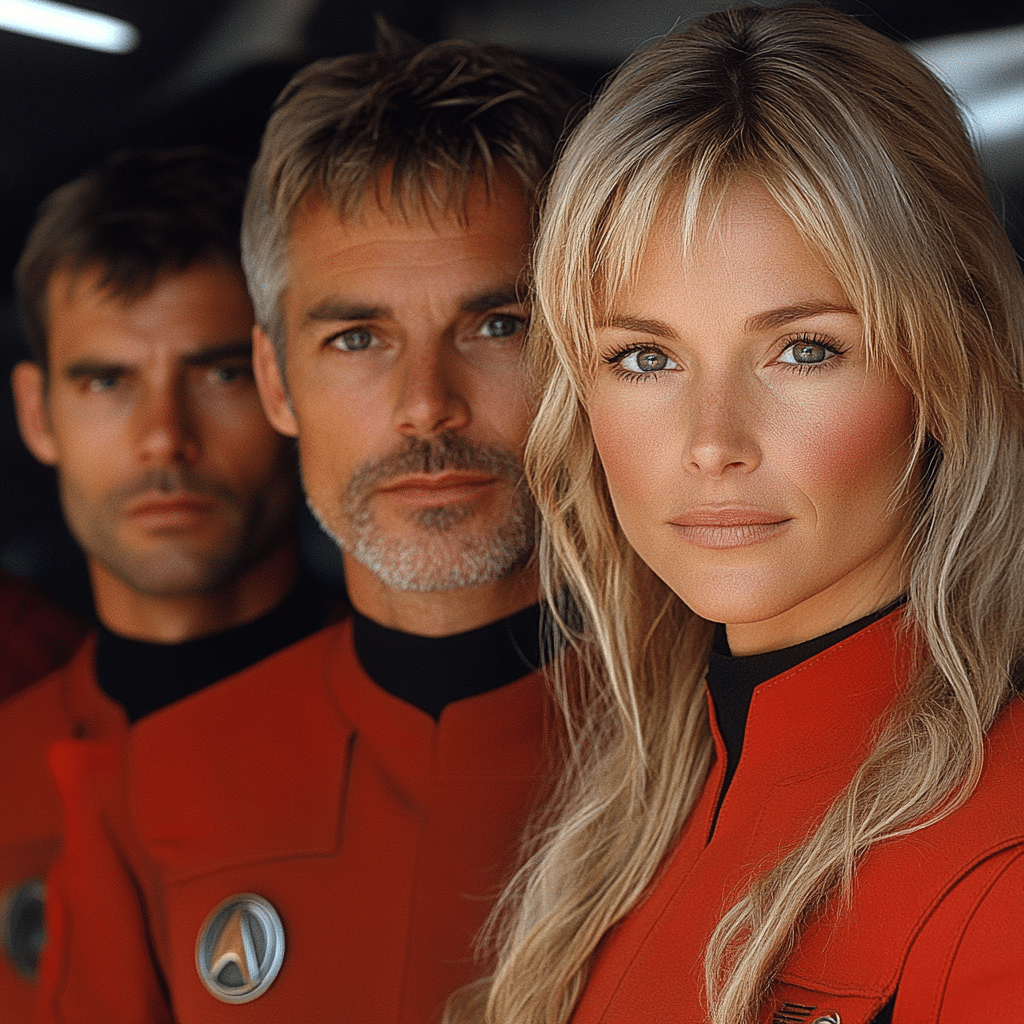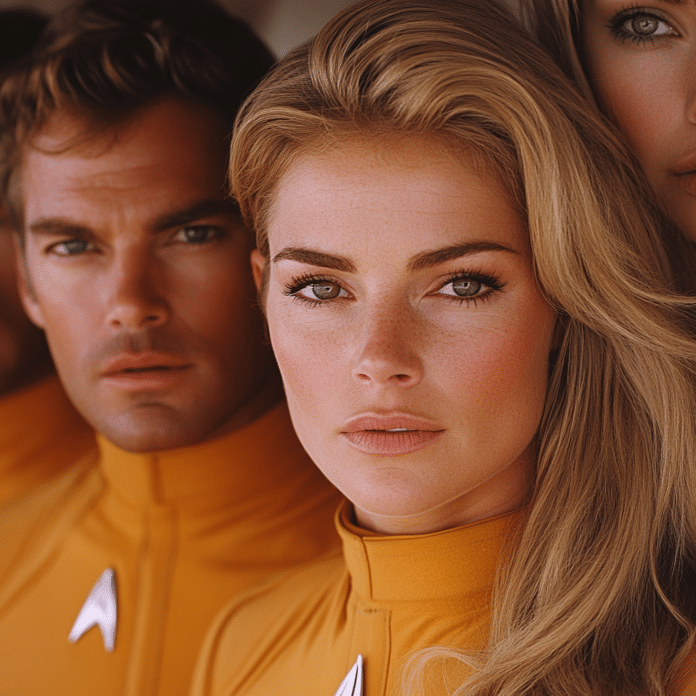
The Legacy of the Star Trek Enterprise Cast and Their Brilliant Reimaginings
When we think about how the Star Trek Enterprise cast redefined their roles, it’s a superb reminder of the unique contributions they made to the franchise. The cast wasn’t just a group of actors; they were pioneers who ventured into uncharted storytelling territory, showcasing vulnerability, complexity, and a dash of humor that brought the series to life. The Star Trek Enterprise cast paved the way for future characters in the ongoing Star Trek saga, leaving a legacy that resonates even in the latest productions like Star Trek Beyond.
Let’s revisit Scott Bakula’s portrayal of Captain Jonathan Archer. Bakula infused the character with a blend of tactical intelligence and heartfelt empathy, presenting a nuanced captain who wasn’t afraid to grapple with his ethical dilemmas. With Archer at the helm, audiences saw a Starfleet still working to find its moral compass in the vastness of space.
Then there’s John Billingsley as Dr. Phlox, the gentle alien doctor who served as the crew’s moral anchor. His thoughtful nature and dedication to life made him a standout character, emphasizing themes of compassion and understanding in the rough-and-tumble backdrop of space travel. Together, this diverse ensemble carved a fresh path, making the Star Trek Enterprise cast unforgettable in the realm of science fiction.

Top 5 Ways the Star Trek Enterprise Cast Redefined Their Roles
The Star Trek Enterprise cast introduced a new signature style that redefined the franchise. Here are the top five ways they brought their roles to a whole new level:
1. Emphasizing Character Complexity
Gone were the one-dimensional heroes and villains. The Star Trek Enterprise cast bravely explored the gray areas of character complexity. Take T’Pol, played by Jolene Blalock; she evolved from a stoic Vulcan into a character grappling with her emotions. This kind of character depth not only fueled plotlines but set a precedent for future narratives in Star Trek Beyond, where characters faced their own identity crises and moral dilemmas.
2. Redefining Leadership Archetypes
Captain Archer’s approach shattered the mold of the infallible starship captain. Scott Bakula revealed a leader with flaws, showcasing vulnerability and moral ambiguity that resonated deeply with audiences. This reimagining influenced the newer iterations of Star Trek, giving rise to characters like Captain James T. Kirk, played by Chris Pine, who also navigated through personal challenges and existential crises.
3. Exploring Everyday Challenges in Space
The Star Trek Enterprise cast didn’t just focus on grand interstellar battles; they brought space travel down to Earth (well, kind of). By weaving elements of personal relationships and everyday struggles into the storylines, they created a relatable atmosphere that grounded the sci-fi setting. This focus served as a springboard for future ensemble casts, creating stories that mirrored real life, even in the vastness of space.
4. Interweaving Humor with Drama
Let’s face it; we all love a good laugh, especially amidst intense situations. The Star Trek Enterprise cast incorporated humor into the narrative brilliantly, striking a balance that made their characters relatable. This comedic relief became a staple in subsequent iterations, where characters engaged in banter during critical moments—showing that even in crises, laughter can find a way through.
5. Cultivating an Inclusive Universe
Inclusivity played a significant role in the Star Trek Enterprise cast. Through a multicultural crew, the show communicated a vision of a united future. This commitment to representation eventually resonated in later productions like Star Trek Beyond, proving that diverse storytelling isn’t just a trend but a necessity. The ensemble reminded us that our differences are what unite us in a shared journey.
The Influence of Data from Star Trek on Character Development
While Star Trek Enterprise may tread different paths from beloved figures like Data from Star Trek: The Next Generation, his influence was still palpable. Data’s struggle to grasp humanity mirrored how characters in Enterprise contended with their own identities amidst the unknown. Both series delved into philosophical themes, inviting audiences to reflect on what it means to be human.
Archer’s introspections and Phlox’s compassion each echoed Data’s quest for emotional understanding. These continued inquiries into existence reflect an enduring tradition among all Star Trek iterations, exploring the profound questions of life amidst grand adventures.
Final Thoughts: The Enduring Impact of the Star Trek Enterprise Cast
Ultimately, the Star Trek Enterprise cast accomplished more than just redefining their established roles; they laid the groundwork for the narrative depth we see in modern Star Trek productions. Their innovative yet relatable portrayals re-energized the franchise, pushing it forward in a culturally rich direction.
As new stories unfold in the Star Trek universe, the influence of the Star Trek Enterprise cast continues to shine brightly. Future casts like those in Star Trek Beyond will surely draw upon the fresh storytelling techniques and character complexities rooted in their performances. The Star Trek Enterprise cast didn’t just make waves; they created a legacy that will echo through the stars for generations to come.
By diving deep into their archetype-defying roles and engaging storylines, Star Trek fans have a lot to look forward to. Keep your phasers on standby and prepare for new extraterrestrial escapades as the Star Trek universe keeps expanding!
Star Trek Enterprise Cast: A New Take on Classic Characters
Behind the Scenes Fun
The Star Trek Enterprise cast breathed new life into iconic roles, making the series a fan favorite. Did you know that Scott Bakula, who played Captain Jonathan Archer, had a surprising connection to ’90s pop culture? He starred in the beloved series Quantum Leap, which set the stage for his career in science fiction. Sadly, the industry lost a cherished talent when Scott Henson Passed away, leaving a mark on everyone he worked with, contributing to a rich tradition that even the Star Trek legacy embraces.
Character Transformations
The dynamic between the cast members fueled their performances. For example, while filming, Linda Park (who played Hoshi Sato) revealed she often relied on her chemistry with her fellow castmates to enhance her character. The Star Trek Enterprise cast exhibited teamwork reminiscent of the camaraderie seen in other group films like the cast Of Pitch perfect 3. Park’s ability to engage with her co-stars resulted in several unforgettable moments that resonated emotionally with fans.
Reimagining the Future
The cast also leaned into their roles in unexpected ways. Take the character of T’Pol, portrayed by Jolene Blalock, who had a fascinating arc that involved personal struggles and growth. This depth added layers to her Vulcan character that often paralleled real-life issues. Interestingly, as revealed in many interviews, some storylines mirrored themes from contemporary discussions, such as What Is a Cuck—a( stark contrast to the typically straightforward narratives surrounding science fiction at the time. These distinct choices led the Star Trek Enterprise cast to create an interpretation that was fresh and resonated with viewers, drawing them into the ongoing narrative of exploration and cultural commentary.
Ultimately, the reimagining of each character helped bridge gaps between traditional storytelling and modern storytelling. From T’Pol’s evolution to Archer’s leadership, the Star Trek Enterprise cast crafted performances that still spark discussions today, guiding fans to explore deeper themes within the series, akin to those found in works like The Beast within or even the nature of connections in modern storytelling. So, whether they were delving into interstellar exploration or the nuances of spooning, the ensemble’s chemistry and interpretative flair certainly made their mark.




